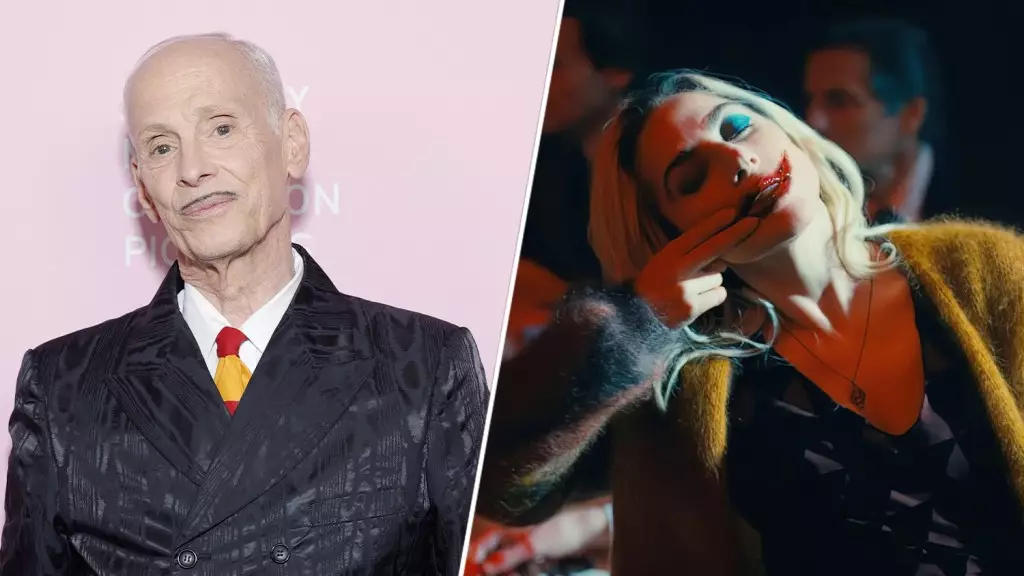John Waters, the iconic filmmaker often dubbed the “King of Filth,” never shies away from making controversial cinematic statements. Recently, he stirred the pot by championing the much-criticized sequel, Joker: Folie à Deux. Despite its dismal reception—boasting a meager 32% rating on Rotten Tomatoes and a disappointing box office return of $206 million against a $190 million budget—Waters boldly labeled it a “well-directed” endeavor. His unabashed enthusiasm for Lady Gaga’s performance reflects his unique appreciation of artistry in unexpected places. Waters’ remarks shine a light on a deeper conversation surrounding film criticism, urging audiences to re-evaluate their preconceived notions about what constitutes quality cinema.
In the vein of theatrical flamboyance, Waters expressed admiration for the chaotic romance depicted in Joker: Folie à Deux. He relished the film’s “insanity” and praised its creative flair, noting, “Finally, a love story I can relate to.” Waters’ description, likening the film to a blend of Jailhouse Rock and Busby Berkeley spectacles, serves not just as a humorous quip but also as an invitation to see the film through an alternative lens. It highlights his belief that love stories come in myriad forms, even those that defy mainstream sensibility.
Narrowing down his favorite films of the year, Waters’ selections speak volumes about his taste for audacity and provocation in cinema. Topping his list is Love Lies Bleeding, which he describes as a “hilarious, bloody film noir.” The vivid imagery encapsulated in Waters’ words hints at a fervent appreciation for bold storytelling that resonates with both passion and humor. His analogy of it being a creation from a hypothetical “lesbian intellectual addicted to steroids” reflects his penchant for merging the absurd with profound social commentary.
Waters’ endorsement of Luca Guadagnino’s adaptation of William S. Burroughs’ novella Queer illustrates his celebration of queer cinema and its evolution. By praising Daniel Craig’s performance, Waters effectively frames the actor’s involvement as both a challenge to conventional roles and a step towards broader representation. His declaration that today’s LGBTQ+ community could benefit from a more radical approach underscores his desire for authenticity and fearlessness in storytelling.
As Waters journeyed through his cinematic reflections, he also lent his approval to Emilia Pérez, cheekily dubbing it “The Rocky Cartel Horror Picture Show.” His enthusiastic tone conveys a belief in the power of unconventional narratives to entertain and inform audiences alike. Furthermore, Waters celebrated Halina Reijn’s Babygirl and the daring risks taken by actress Nicole Kidman, extolling the unexpected creativity emerging from the mainstream. This acknowledgment that heteronormative productions can also push boundaries enhances Waters’ reputation as an equal opportunity provocateur.
In sum, John Waters stands as a cultured provocateur, offering fresh insights into cinema’s vibrancy through his unabashed enthusiasm for the bizarre and the bold. His willingness to defend films like Joker: Folie à Deux urges viewers to look beyond the surface of critical reception and explore the rich tapestry of storytelling that challenges conventional aesthetics. In a world often swayed by criticism, Waters reminds us of the joy found in embracing the eccentricities of film.
